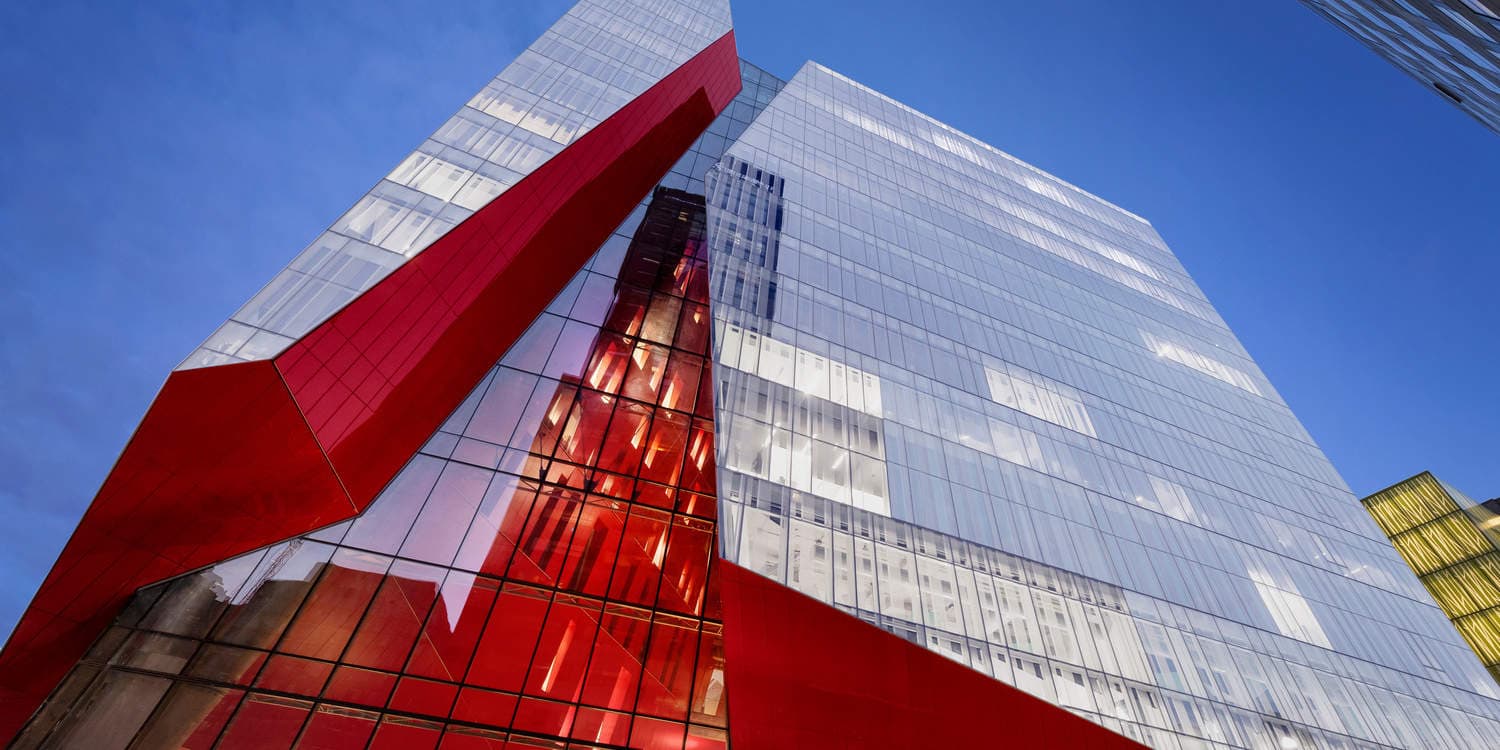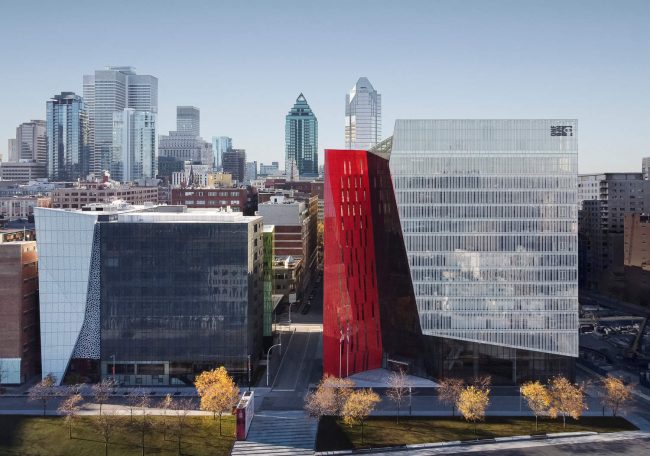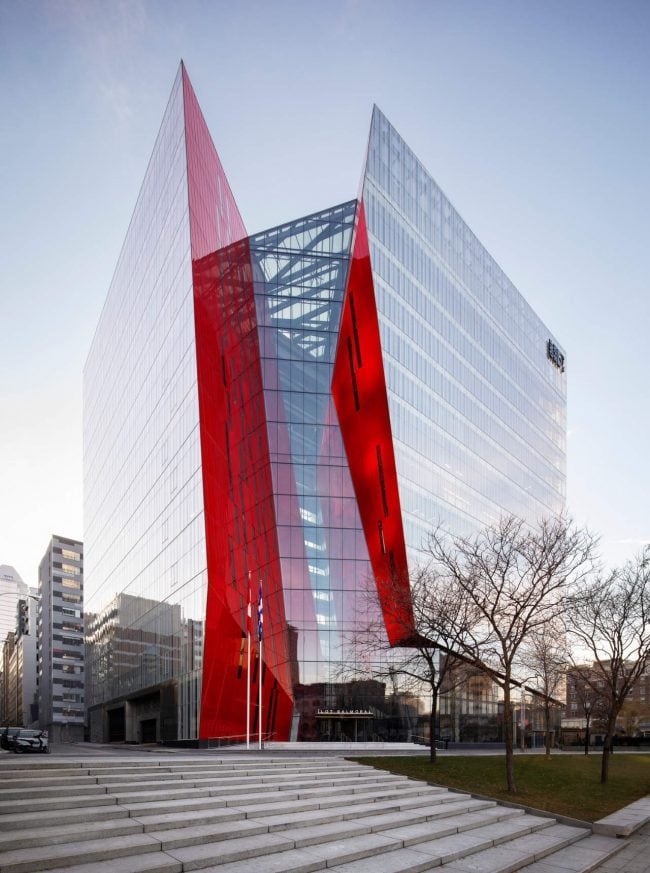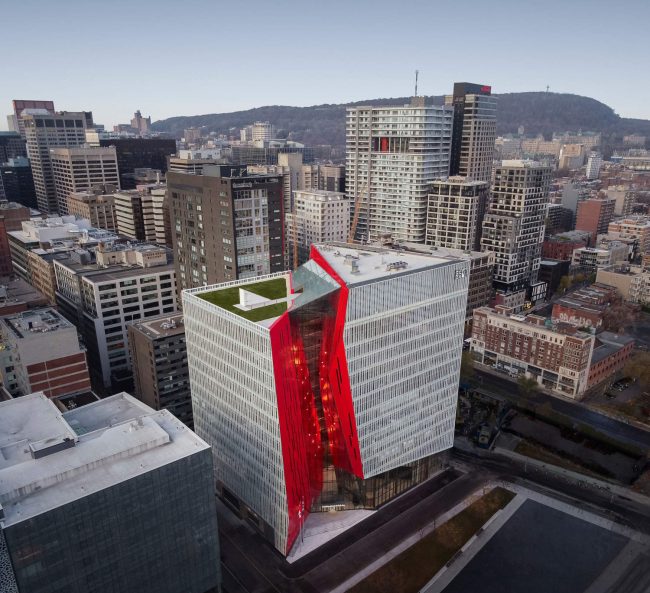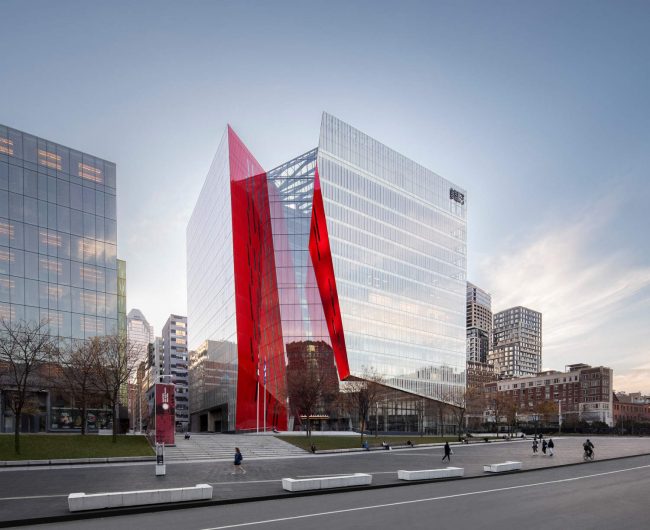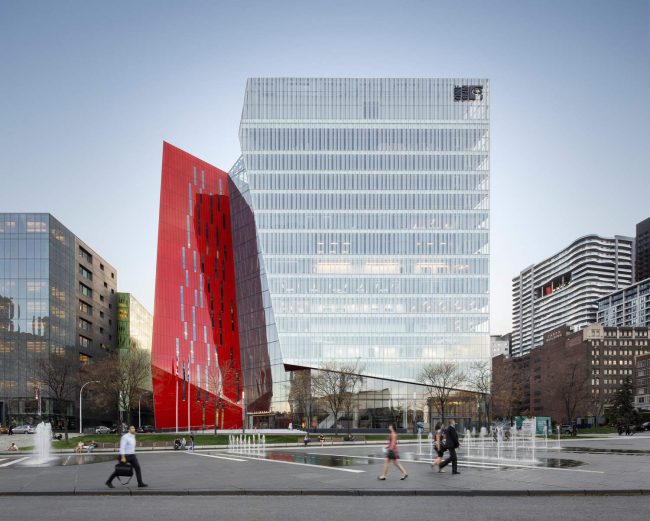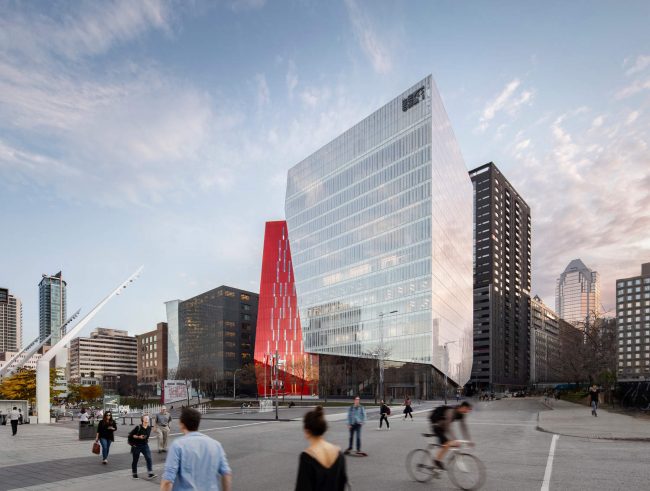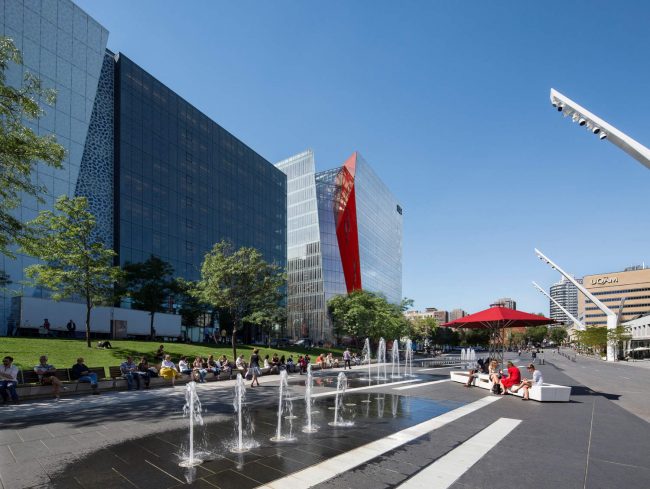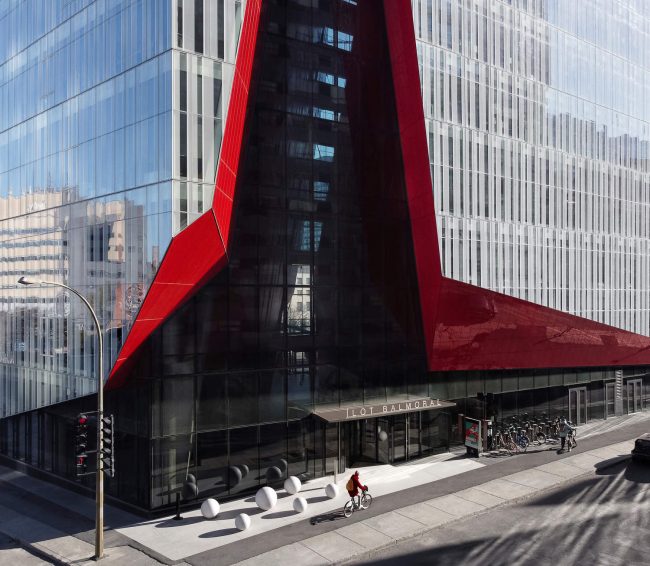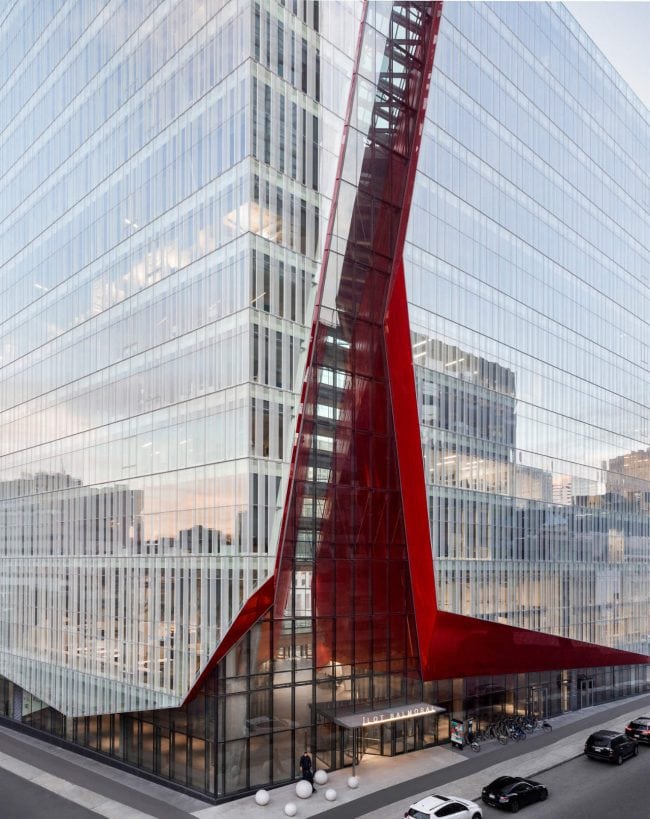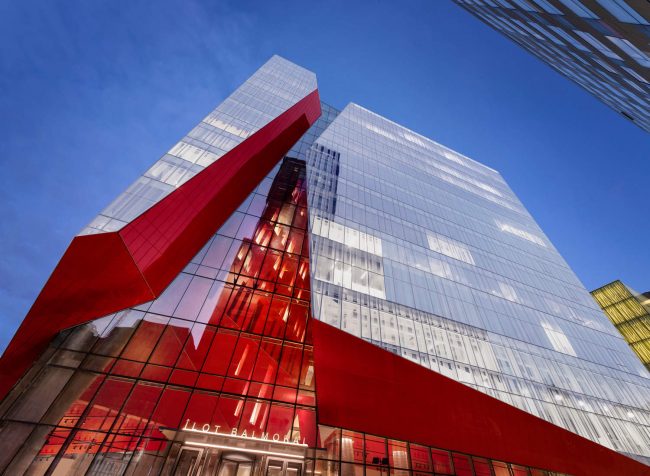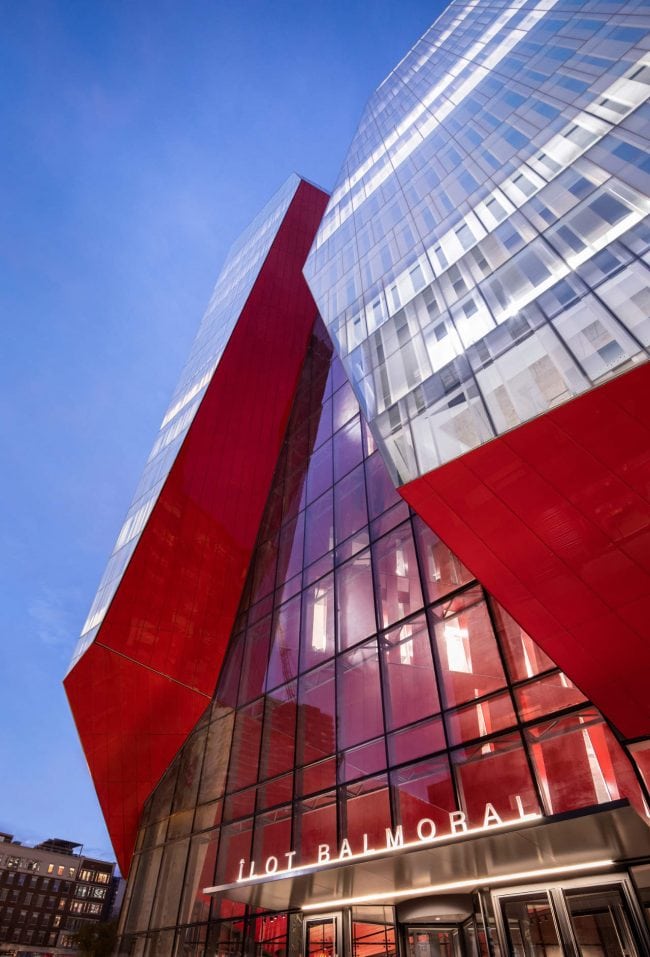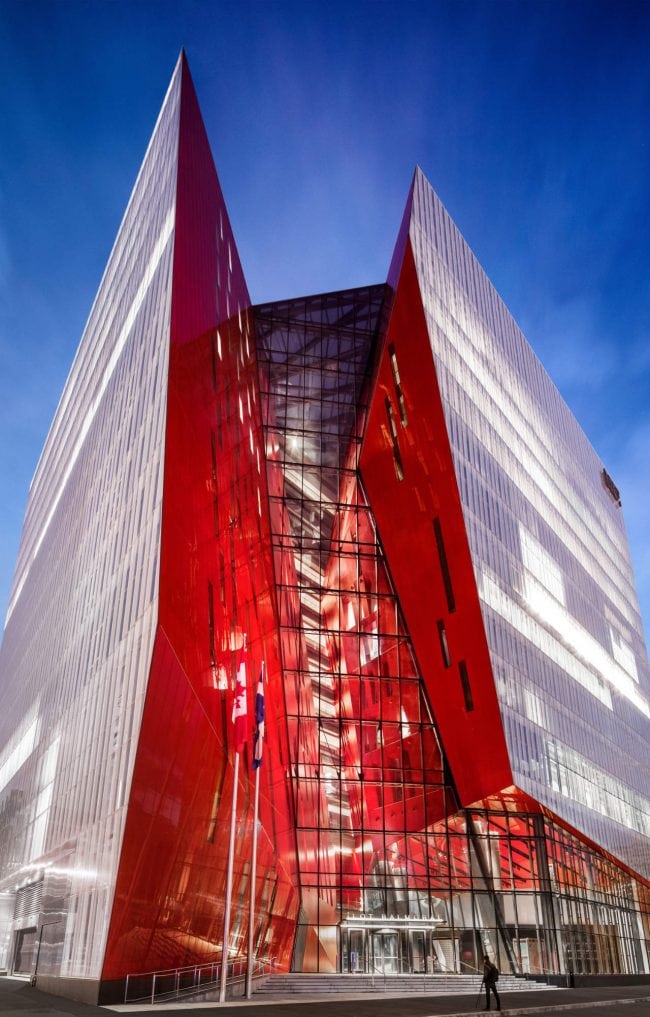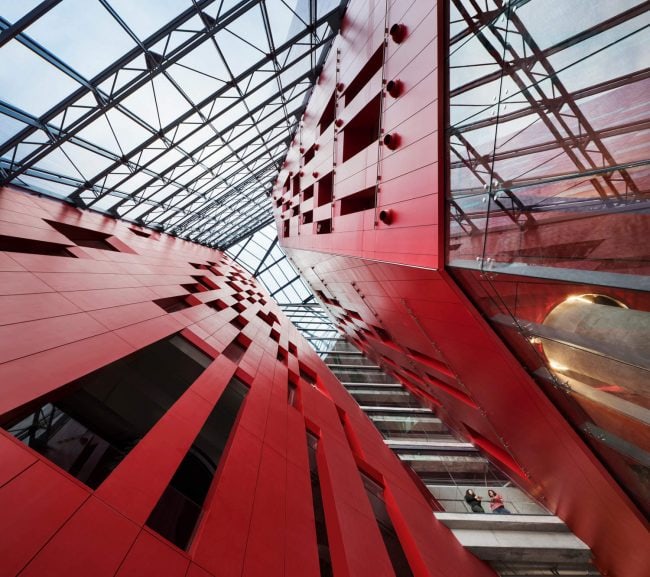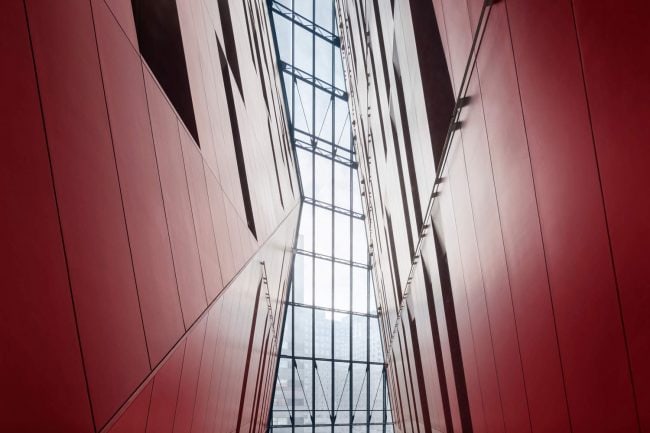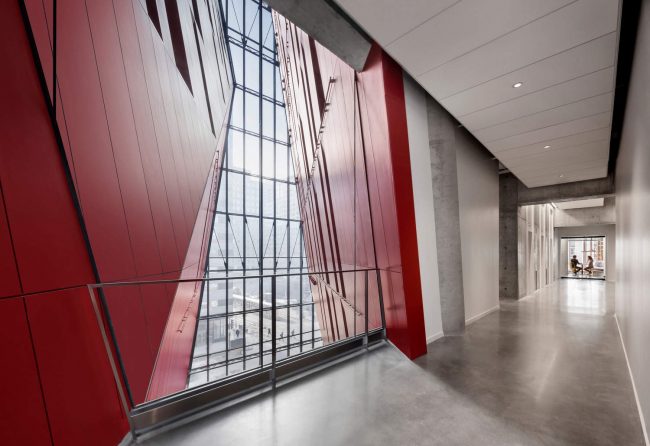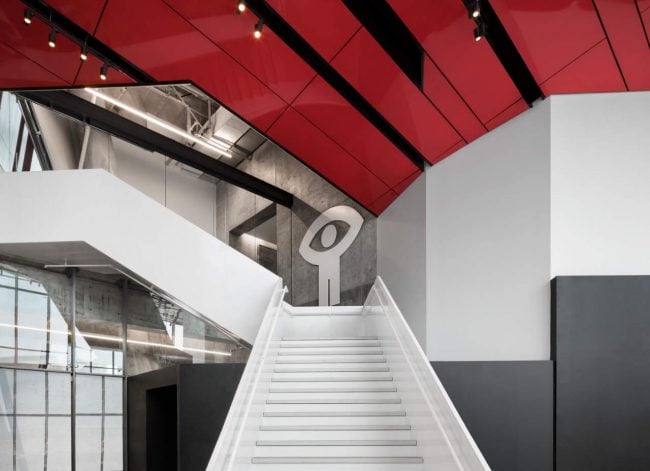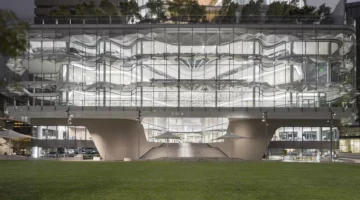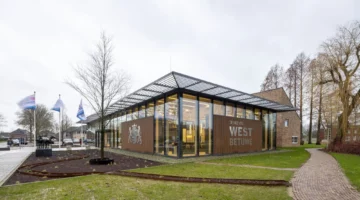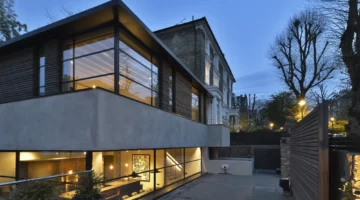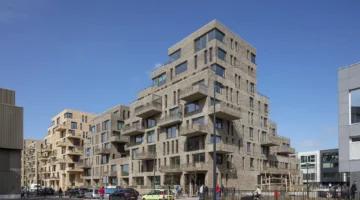The Îlot Balmoral, a 13-storey mixed-use office building commissioned by the Société d’Habitation de Montréal (SHDM), rises as a testimony to Montréal’s creative economy. One of the final major developmental pieces of the ‘Quartier des Spectacles’ in downtown Montréal, the impressive structure sits adjacent to Place des Festivals, and is the new home of the National Film Board of Canada (NFB) and UQAC’s École des arts numériques, de l'animation et du design (NAD School).
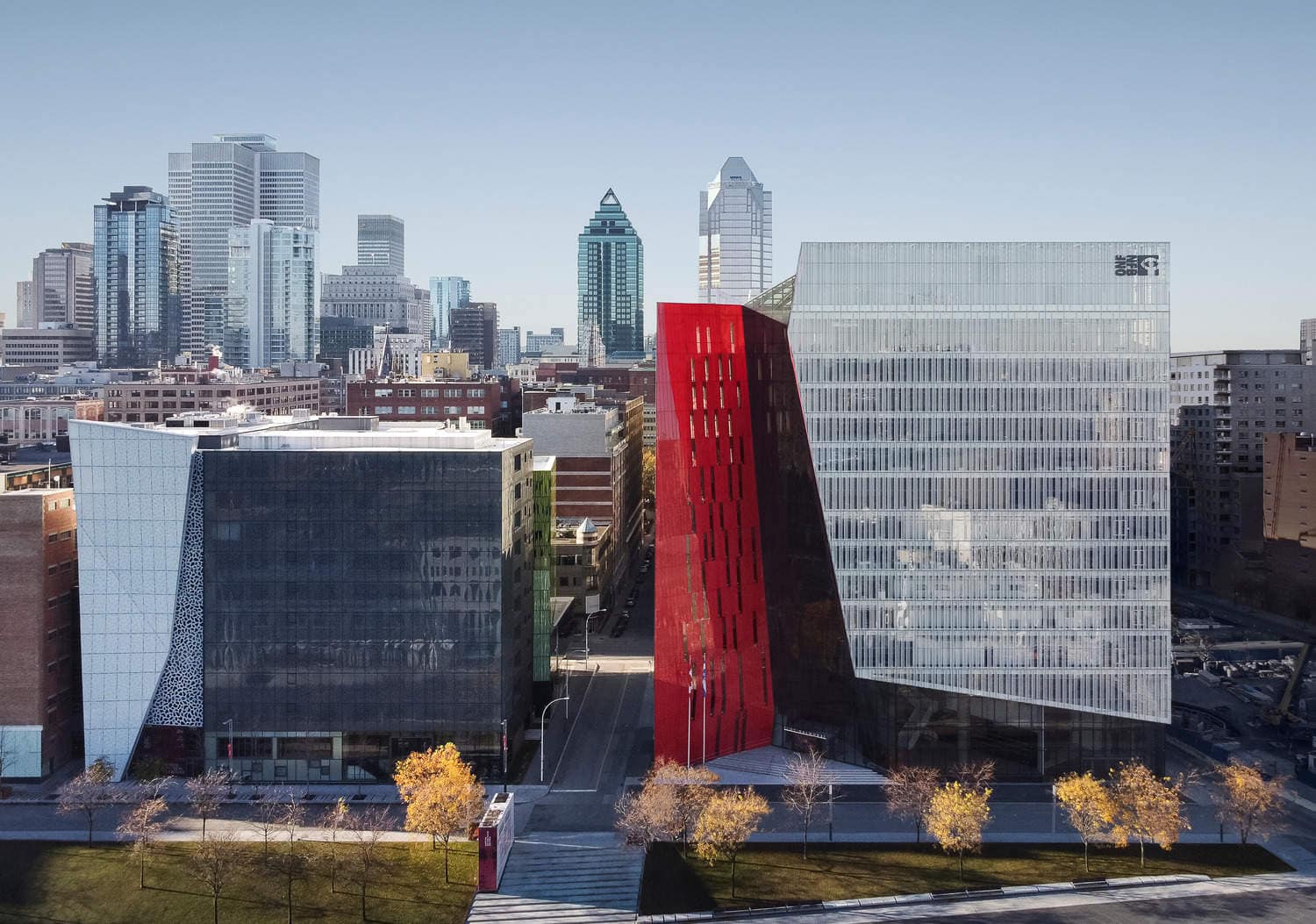
“We proposed four visions of what an office building specifically designed for a cultural economy could look like, and Îlot Balmoral was selected to echo the very vibrant, dynamic nature of the district,” explains architect Claude Provencher, founding partner at Provencher_Roy. “The Quartier des Spectacles is a cultural centre of activity that is now almost complete in its revitalization and transformation of the urban fabric surrounding Place des Arts.”
An architectural symbol of creativity
On the surface, Îlot Balmoral is a highly dynamic structure rising up from the urban fabric. The almost perfect cube is very clean and slick, and is wrapped in exterior glass that was carefully selected for its white frit pattern and translucent panels. The smooth and seamless exterior positions the façade as a potential giant screen against which projections of Quartier des Spectacles initiatives can be presented. Subtle and dynamic tonality provides a sense of mass and substance to the structure, and the glass façade provides an enormous infusion of light into the building. The frit pattern also serves to control thermal heat gain inside of the building, which meets the firm’s LEED Gold sustainability objectives.
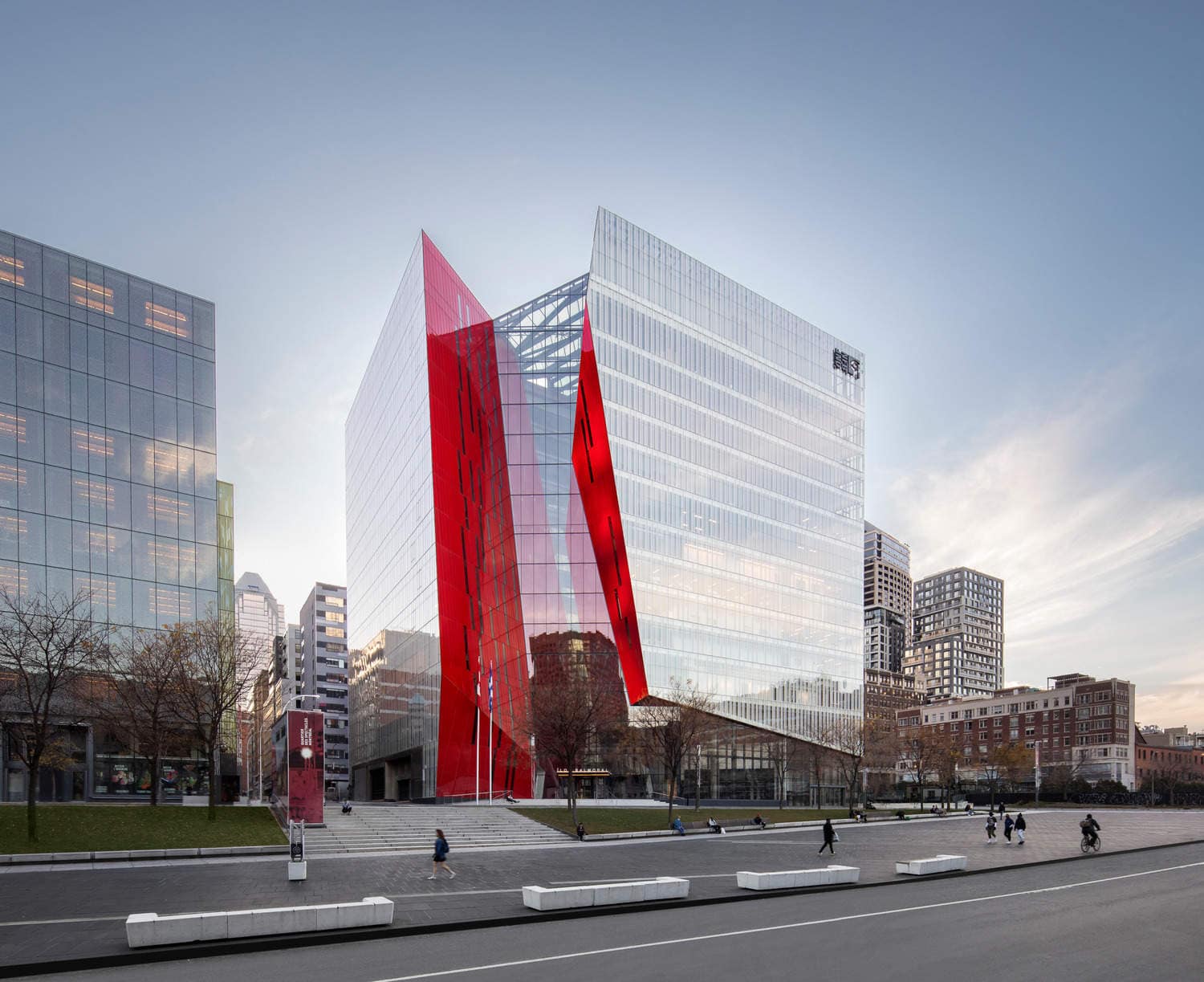
The exterior façade’s infusion of light dynamically highlights a large internal atrium, carved diagonally through the centre of the building to create two volumes. The firm oriented the cut based on the site’s previously existing pedestrian flow, moving diagonally between the Place des Arts Metro station and Place des Festivals. To delineate the cut, and to make the building’s mark on the skyline, a bright red external fold contrasts against the clean glass exterior. The colour was chosen as an echo of the cultural branding materials of the Quartier des Spectacles, and serves to distinguish Îlot Balmoral from the functions of more traditional office towers in the district.
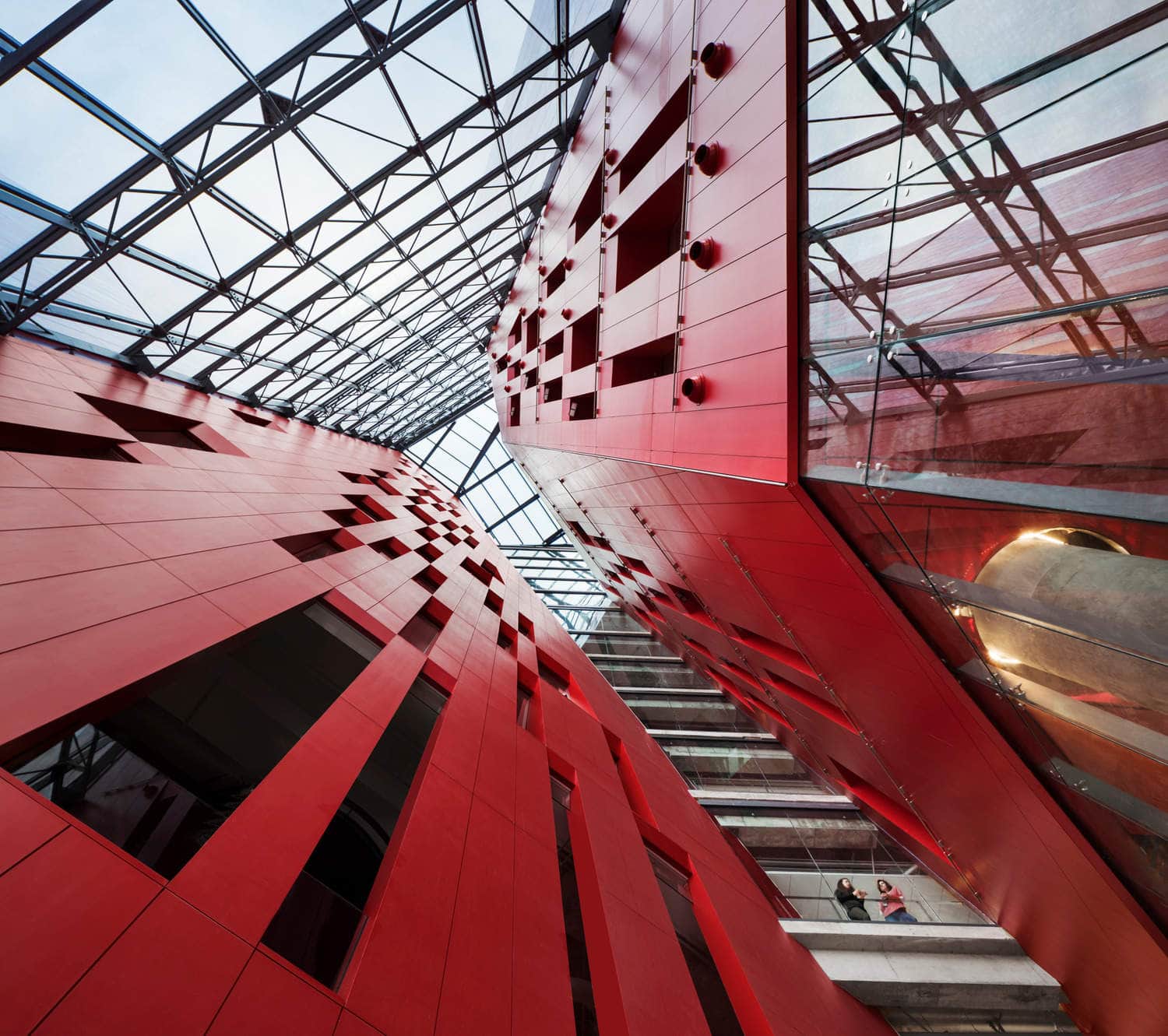
Anchoring the creative economy
As a nod to Îlot Balmoral’s importance to Montreal’s creative scene, the National Film Board of Canada signed on as the building’s core tenant. Celebrating 50 years of film excellence, the Canadian institution was looking to modernize and transform their facilities, and the move included the reinstallation of the iconic NFB logo in the new lobby, which is a symbol of Canadian design history.
“The NFB signing was proof of concept for us that architecture can redeploy and reprogram how neighbourhoods are defined, not only on a visual or physical level, but also in its role as a centre of cohabitation,” says Provencher. “Several other cultural organizations have since signed leases, and Îlot Balmoral is becoming the creative hub that we envisioned.”
Without requiring any significant changes to the architecture, Provencher_Roy redesigned four floors of Îlot Balmoral for the NFB in order to accommodate their technical requirements, including editing rooms and the hosting of state-of-the-art equipment. They also built a brightly lit white staircase leading up to the NFB offices, located directly under the red canopy of the building’s main entrance.
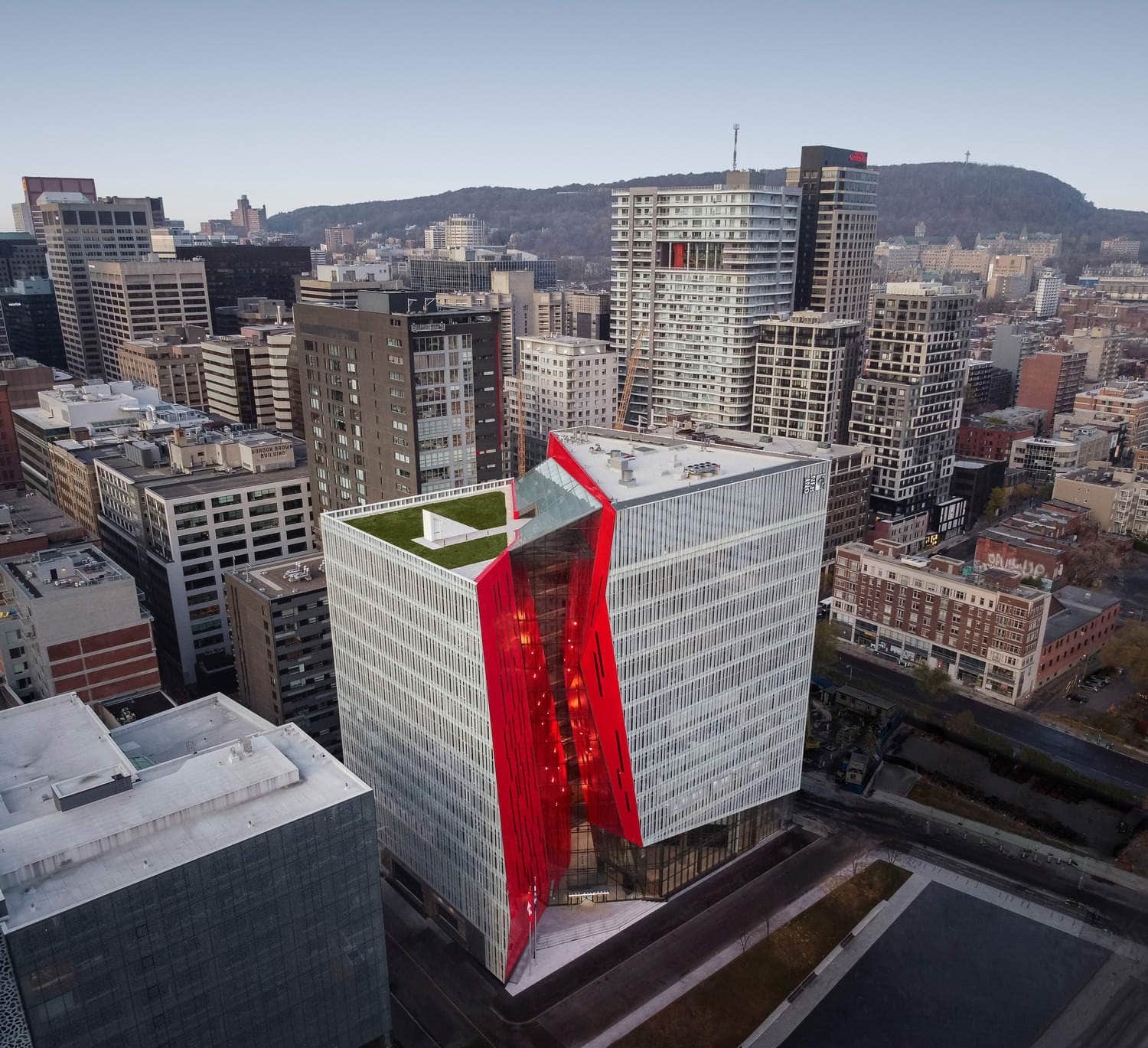
A beacon of vibrancy
Provencher_Roy’s inclusive design strategy embraces the vibrancy of the district by drawing in pedestrian flow across the diagonal cut of the building’s sunlit lobby. The atrium establishes the lobby’s unique identity, ascending skyward to the building’s glass ceiling amidst a bright material palette of white and light gray walls, and exposed concrete floors. The palette was chosen to reflect and enhance the energy and dynamism of the lobby, anointed with additional features including exposed columns and a signature brass deck.
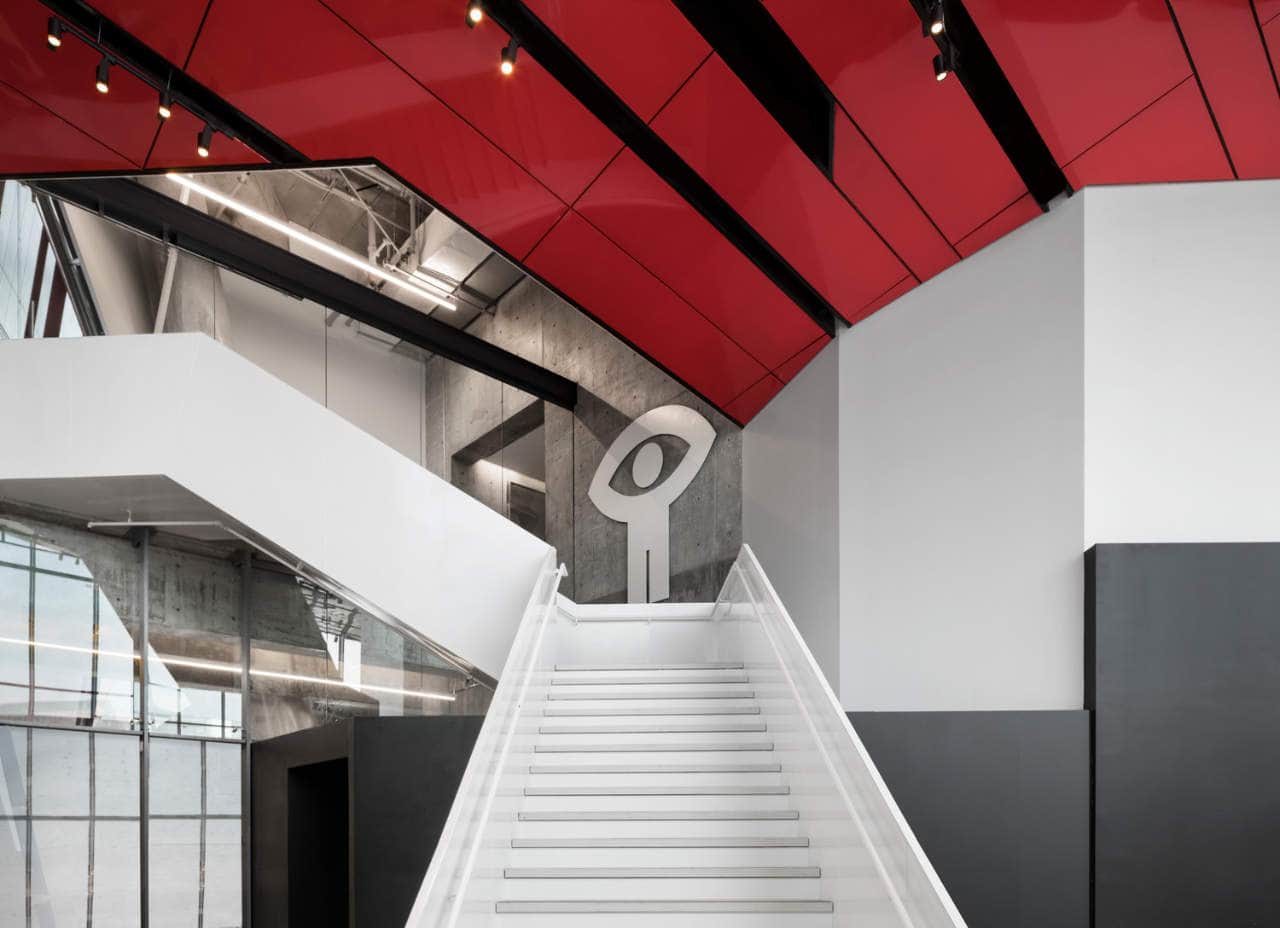
Above the lobby level, the open atrium is framed by brightly lit offices. Pedestrian bridges on every level connect the building’s two volumes, crossing the atrium and providing spectacular views of the surrounding cityscape, with a backdrop of Montreal’s landmark Mont Royal. The northeastern volume floats one storey higher than the southwestern volume, and the latter hosts a rooftop greenspace with breathtaking city views that is designed for outdoor events.
“It was a particularly interesting experience, driven by our client’s eagerness to achieve something spectacular,” summarizes Claude Provencher. “Beyond the functionality of the individual spaces of the built environment, we believe that Îlot Balmoral captures and incorporates the vibrancy of the district.”
Îlot Balmoral | Project Details
Credits:
Client: Société d'habitation et de développement de Montréal (SHDM)
Contractor: Construction Management: Groupe TEQ
Electromechanics: Dupras Ledoux ingénieurs
Structure: Nicolet Chartrand Knoll Ltée
Acoustic: Davidson Legault
Lighting: CS Design
Other Collaborators: AECOM / Exim / Go multimédia / Technorm
Certification: Candidate for Gold LEED-NC Certification
